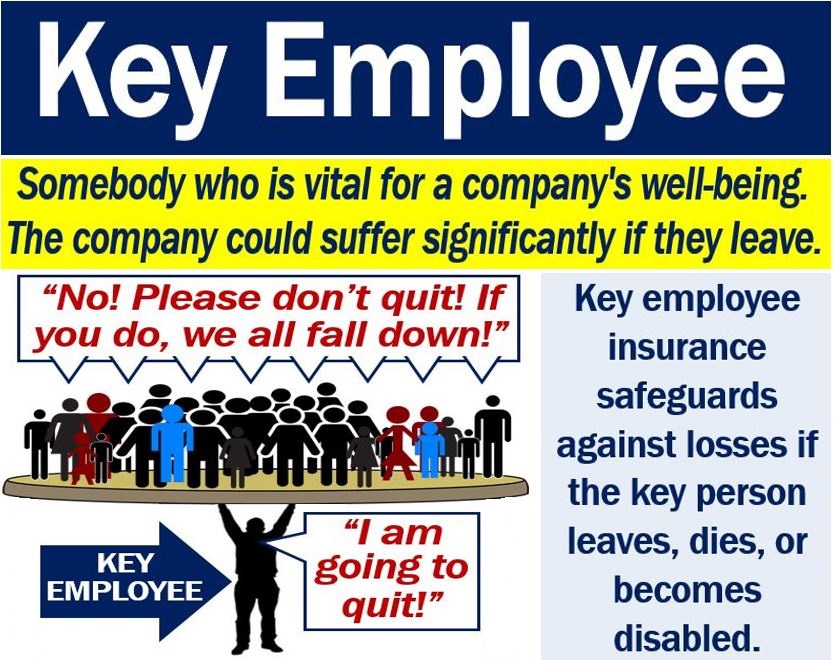A key employee is somebody who works in a company and has a major decision-making or ownership role in the firm. Key employees are stakeholders in the operation of a business. Companies tend to pay key employees well. Many of them receive financial incentives to join and stay in the company.
This person may also be an officer in the company with voting rights. In other words, what this person decides or how he or she votes affects the company.
We also use the terms ‘keyman‘ and ‘key personnel.’
In a small company, key personnel may include its top salesperson or a talented technician. It could also be a *back office person who is the backbone of the company.
** The back office is the part of a company that outsiders rarely see. Administration, accounting, and IT, for example, are back office departments.
The death of key employees could prove devastating for the company or organization. In fact, their absence can trigger massive losses.
The IRS defines a key employee as somebody who manages 10% or more of an organization’s assets. It also includes people who manage at least 10% of an organization’s activities or expenses. IRS stands for the Internal Revenue Service of the United States.
There are other IRS and government regulations that have varying definitions of ‘key employee.’

In most jurisdictions, there are some similarities between a highly compensated employee (HCE) and a key employee. However, in most cases, the compensation threshold for HCEs is lower.
BusinessDictionary.com has the following definition of the term:
“Employee that is considered to be a key stakeholder in the operation of a business. This employee may also be an officer with voting rights that can affect the company.”
Key employee coverage
Key employee coverage protects companies that have key personnel. The insurance safeguards against losses the company may suffer if that person dies or suffers a disability.
We also call this type of insurance key person coverage or keyman insurance.
Most insurance policies come with a first-to-die option. In other words, the company can insure several employees in the same policy. Therefore, it is cheaper than a standard life insurance policy.
